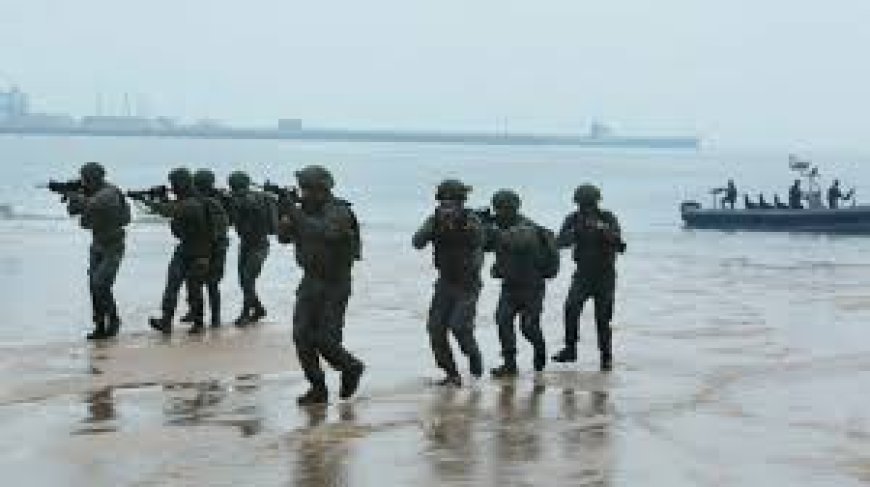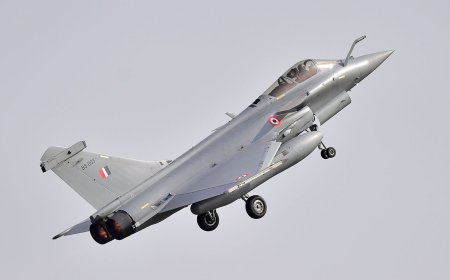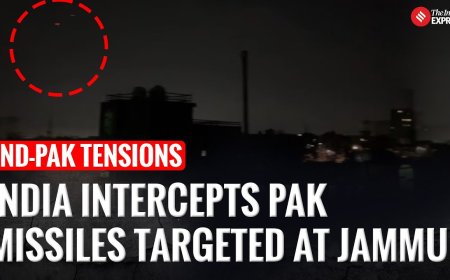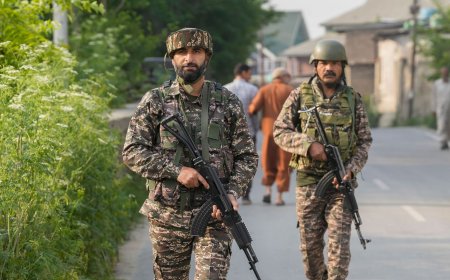Taiwan launches longest-ever military drills as China increases pressure: A lesson from Ukraine?
Taiwan begins its longest military exercises in response to China’s growing pressure. Experts say the strategy mirrors Ukraine’s defense approach. Read full analysis and market impact.

Taipei, July 11, 2025 — Amid rising tensions in the Taiwan Strait, Taiwan has commenced its longest-ever military drills, signaling a significant strategic shift in the island's defense posture. The drills, set to last 14 days, come as China ramps up its military pressure, frequently deploying warplanes and naval vessels near Taiwan. Analysts say the extended duration and scale of the exercises reflect a broader deterrence strategy—one that draws crucial lessons from Russia’s ongoing war in Ukraine.
A Show of Resolve
The Taiwanese Ministry of National Defense (MND) announced that the annual Han Kuang military exercises, which began on July 8, will span across land, sea, and air, integrating cyber defense and civilian mobilization components. This year’s iteration will also include simulation-based scenarios resembling a full-scale blockade and amphibious invasion.
“The situation in Ukraine has fundamentally reshaped how democratic societies view existential threats,” said Dr. Mei-fen Tsai, a strategic affairs analyst at Taiwan’s Institute for National Defense and Security Research (INDSR). “Taiwan is watching closely and preparing accordingly—not just for a military confrontation, but for hybrid warfare involving information, infrastructure, and civilian resilience.”
Context: Rising Cross-Strait Tensions
China views Taiwan as a breakaway province and has vowed to reunify it with the mainland—by force if necessary. Since the election of Taiwanese President Lai Ching-te in May 2024, Beijing has escalated its military presence, criticizing Lai’s Democratic Progressive Party (DPP) for "provocative" pro-sovereignty rhetoric.
Over the past month, Taiwan has reported near-daily incursions by Chinese aircraft crossing the median line in the Taiwan Strait—a previously respected but unofficial boundary. On July 3, China conducted joint navy-air force drills around Taiwan, calling them "combat readiness patrols."
In response, the United States reaffirmed its support for Taiwan under the Taiwan Relations Act, dispatching guided missile destroyers through the Strait and conducting joint drills with allies in the Indo-Pacific.
Lessons from Ukraine
The enduring war in Ukraine, now entering its fourth year, has become a case study in asymmetric warfare and national resistance. Taiwan’s defense leadership has taken key lessons from Kyiv’s resilience, particularly in civil-military integration, the use of drones, and the decentralization of command.
“We’ve witnessed how an embattled democracy can hold out against a larger aggressor with the right mix of training, public will, and international support,” said Admiral Huang Shu-kuang, Taiwan’s top military adviser. “Our drills now simulate prolonged resistance and supply chain disruptions, just as Ukraine has faced.”
The MND confirmed the participation of civilian volunteers in the exercises for the first time, including in logistics, drone reconnaissance, and emergency medical response.
Market Reaction and Strategic Implications
Markets in Taiwan remained relatively stable in early trading despite the intensification of the drills. The TAIEX index dipped slightly by 0.3% on July 10, reflecting investor caution but no immediate panic. Defense-related stocks, however, saw a slight uptick, with aerospace supplier AIDC gaining 2.1% and cybersecurity firm CyCraft up by 3.4%.
“The market has somewhat priced in geopolitical friction,” said Claire Wu, Head of Asia-Pacific Strategy at DBS Bank. “But the increased duration of military exercises signals a paradigm shift—Taiwan is no longer merely reacting, but actively shaping its deterrence environment.”
The drills also hold implications for global supply chains. Taiwan produces over 60% of the world’s semiconductors, and any conflict could paralyze the global electronics industry. As a precaution, major chipmakers like TSMC and UMC have activated contingency plans involving overseas production capacities.
Regional and Global Reactions
Japan and Australia, both members of the Quad alliance, expressed support for Taiwan’s right to self-defense. Meanwhile, Beijing condemned the exercises as “dangerous provocations that threaten regional stability.”
Foreign ministries in Europe have called for “strategic calm,” noting that the world cannot afford a second major war while still dealing with the consequences of Russia's invasion of Ukraine.
The U.S. Pacific Command confirmed the deployment of two naval assets to the region but emphasized that its posture remains “defensive and supportive of peace and stability.”
Investor Outlook: Risk and Readiness
Despite geopolitical headwinds, Taiwan remains a key player in the global economy. Investors are watching three key indicators: U.S. foreign policy clarity under President Biden, China's internal economic stability, and the resilience of Taiwan’s supply chains.
“Defense is no longer a standalone sector in Taiwan—it’s integrated with infrastructure, finance, and innovation,” said Ming-chang Lee, an investment strategist at Cathay Securities. “Smart investors aren’t pulling out—they’re repositioning into sectors that bolster sovereignty: clean energy, AI, and defense tech.”
Still, risk premiums on Taiwanese assets are expected to rise in the short term. Credit Suisse has revised Taiwan’s geopolitical risk rating to “Elevated,” urging investors to diversify holdings while maintaining long-term confidence in Taiwan’s tech sector.
Taiwan’s decision to conduct its longest-ever military drills signals a fundamental shift in how it prepares for future threats. By embracing a more holistic, Ukraine-informed defense strategy, the island is sending a message—not only to Beijing but to the world: deterrence is no longer optional. It’s existential.
As tensions rise, Taiwan’s ability to maintain domestic stability, international support, and technological dominance will be key to preserving peace in the Indo-Pacific.
What's Your Reaction?
 Like
0
Like
0
 Dislike
0
Dislike
0
 Love
0
Love
0
 Funny
0
Funny
0
 Angry
0
Angry
0
 Sad
0
Sad
0
 Wow
0
Wow
0












































































